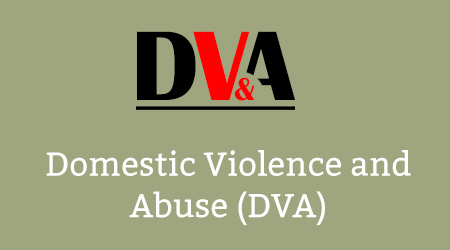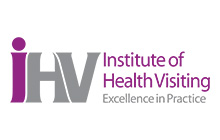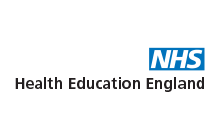

About the Domestic Violence and Abuse programme
The elearning sessions are intended for use by health visitors and nurses. The programme consists of four new introductory modules which have been updated and added in April 2020 following a refresh of the evidence, policy and legislation on domestic violence and abuse.
Domestic violence and abuse are major public health issues; it can affect men and women, and it can affect individuals in all relationships, including LGBT+ relationships and familial settings. However, it remains a largely gendered issue with the impact disproportionately affecting women.
These updated modules include the latest definition of domestic violence and abuse which incorporates concepts of coercive control, includes both single incidents and patterns of behaviour and covers the concept of ‘economic abuse’. The training takes a trauma informed approach which takes account of the whole family who are experiencing domestic violence and abuse, looking at root causes of behaviour whilst also challenging and holding those perpetrating the abuse to account. The needs of children remain paramount and there is greater emphasis on ensuring that the “voice of the child” is heard and remains central to assessment and safety planning.
The modules are aligned to underpinning statutory guidance for professionals who have safeguarding obligations.
-
More information:
In 2018 the government committed to publish a draft Domestic Violence and Abuse Bill to improve protections for victims, linking to the broader work of the Home Office on Violence Against Women and Girls. The consultation set out the government’s approach to tackling domestic abuse seeking to address domestic abuse at every stage from prevention through to rehabilitation, and reinforced their aim to make domestic abuse everyone’s business.
Health visitor and school nursing services embed public health and prevention across health service pathways. They promote a whole system approach to provide safer, personalised, accessible support and individualised care to improve outcomes for children, young people and families. Public Health England has identified safety, including domestic violence and abuse as a key cross cutting priority for health visitors and school nurses (Public Health England, 2019 – Best start in life and beyond: Guidance to support the commissioning of the Healthy Child Programme 0-19).
The recently updated “Health for All Children: fifth edition” makes numerous evidence-based recommendations for practice to support those affected by domestic violence and abuse, including:
“All health and social care practitioners involved in assessing, caring for, and supporting people experiencing or perpetrating intimate partner violence (IPV) and abuse should have sufficient and appropriate training and competencies in IPV”.
(Emond (eds), 2019)
In order to develop safe and effective practice it is important that practitioners develop a full appreciation of what domestic violence and abuse involves and how it impacts upon everyday family life, parenting, child wellbeing and safety. This elearning programme discusses how it is defined and understood and some of the key practical and theoretical issues linked with this. An overview of the extent of the problem, groups at increased risk of domestic violence and abuse, linked issues, the wider legal and policy framework, as well as the overall impact on communities, victims and their children is also provided. Each module also contains references to support further reading and wider learning. Identification of need and early intervention/work with families can significantly reduce risk of ongoing harm and is important not only for the wellbeing of the child, but to the health and wellbeing of the children and families affected.
The four elearning modules, each lasting around 30-45 minutes, were developed by the Institute for Health Visiting and Health Education England.
-
The focus of each module is:
- Module one – Understanding domestic violence and abuse
- Module two – Identification of domestic violence and abuse
- Module three – Risk assessment for victims of domestic violence and abuse
- Module four – Safety planning and support for families
The modules include videos, case studies, links to aid learning and questions to test your knowledge of the subjects and reflect on your learning.
-
Aims and Objectives
Aims
- To equip health visitors and nurses with the skills and knowledge that will enable them to provide a proactive, responsive and safe service to families experiencing domestic violence and abuse. (Due to the transferable nature of the content, the modules will also be relevant to practitioners working with children and families across the wider healthcare system).
Objectives
To increase participants knowledge of:
- The concept of domestic violence and abuse, the differing forms that this may take and the policy imperative for responding
- the prevalence and risk factors for domestic violence and abuse and the impact on the health and well-being of the child, family and community
- the use of ‘routine’ and ‘selective enquiry’ in practice; and the challenge of overcoming barriers to their use
- high risk factors linked to domestic violence and abuse and the paramount principle in prioritising the safety and well-being of children within the family
- timely and appropriate referral pathways for victims and children who are at risk of or are experiencing domestic violence and abuse
- professional requirements for record keeping, confidentiality and information sharing and the importance of supervision for the delivery of safe and effective practice in this field.
To be confident and able to:
- Recognise and assess situations that may be indicative of domestic violence and abuse
- use formal tools and processes to support early intervention and the provision of a timely and sensitive response to disclosure of domestic violence and abuse that also ensures the safety and well-being of children
- work safely and effectively with families where domestic violence and abuse is an issue, taking into account the needs of victims, their child(ren) and perpetrators.
Acknowledgements:
The content of these modules has been co-produced by the Institute of Health Visiting with:
- Health visitors with lead roles for domestic violence and abuse, researchers and safeguarding specialists,
- Representatives from Women’s Aid, the Stefanou Foundation, Family Nurse Partnership and GALOP, the UK’s specialist lesbian, gay, bisexual, and transgender plus anti-violence charity.
- “Experts by experience” who generously shared their first-hand experience of the effects of domestic violence and abuse for the benefit of others.
-
With specific thanks to:
- Lead author: Dr Sue Peckover, Reader in Public Health Nursing, Sheffield Hallam University. RN, HV, PhD, MMedSci, PGCE, BSc Econ. (Hons).
Other contributors:
- Dr Caroline Bradbury-Jones, Reader in Nursing; Caroline is a registered nurse, midwife and health visitor who has undertaken extensive research into domestic violence and abuse in the context of healthcare. Much of her research has focused on health visitor responses to domestic violence and abuse
- Dr Tanya Dennis, HV Specialist/Domestic Violence Lead, Central and North West London Foundation Trust, 0-19 services /Marac representative. PhD BSc, MSc, RGN, Dip N, RHV, FETC, FIHV
- Helen Foad, Domestic Abuse Lead Health Visitor and MARAC representative, Kent Community Health Foundation Trust. HV, FiHV, RGN, RMN, RM. Freedom and Recovery tool Kit Programme Facilitator, and previously Chair of the Ashford Domestic Abuse Forum. iHV Domestic Violence and Abuse trainer
- Jacqui Kilburn, Manager of National Training Centre, Women’s Aid Federation, England. Practitioner and development lead for Domestic Violence and Abuse
- Melanie Lumbers, MSc, HV, PG Dip, CNP, BSc (Hons), RGN, DIp HE (Nursing) Currently working independently in both acute and community settings
- Dr Jasna Magić, Research and policy officer at Galop, where she leads on a national project raising awareness on LGBT+ people’s experiences with domestic violence
- Alison Morton, Director of Policy and Quality at the Institute of Health Visiting. RGN, RHV, DN, BSc(hons), MRes, FiHV
- Michelle Moseley, Lecturer, Primary Care and Public Health Nursing, School of Healthcare Sciences (HCARE), Cardiff University
- Judith Rees, Director For Baby’s Sake, The Stefanou Foundation. RN, RM, RHV, BSc (Hons) Community Specialist Practitioner, MSc Child Protection & Child Welfare
- Justine Rooke. Health Visitor Advisor, Public Health England; Service Manager in the East Riding of Yorkshire for Humber Teaching Foundation Trust. RHV, FiHV
- Sarah Tyndall, Clinical Quality Lead at the Family Nurse Partnership National Unit.
RGN, BA (Hons) Primary Care, MA (child protection and complex child care).
How to access
In order to access the Domestic Violence and Abuse programme, you will need an elfh account. If you do not have one, then you can register by selecting the Register button below.
To view the Domestic Violence and Abuse programme, select the View button below. If you already have an account with elfh, you will also be able to login and enrol on the programme from the View button.
Not an NHS organisation?
If you are not an NHS health or care organisation and therefore do not qualify for free access elfh Hub, you may be able to access the service by creating an OpenAthens account.
To check whether or not you qualify for free access via OpenAthens, you can view the eligibility criteria and register on the ‘OpenAthens’ portal.
Registering large numbers of users
If you are a HR, IT or Practice Manager and would like to register and enrol large numbers of staff within your organisation for access onto the Domestic Violence and Abuse programme, please contact elfh directly.
Organisations wishing to use their own LMS
For HR departments wanting to know more about gaining access to courses using an existing Learning Management System please contact elfh directly to express interest.
More information
Please select the following link for more information on how to use the elfh Hub.
elearning section.



